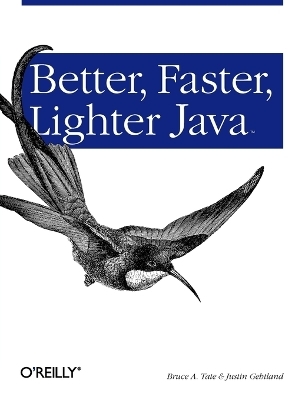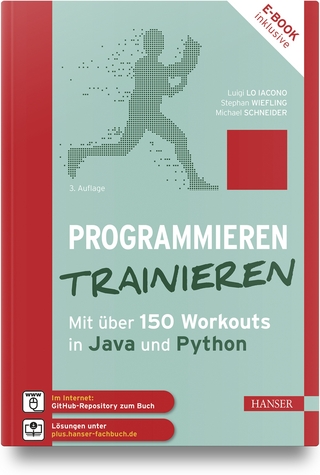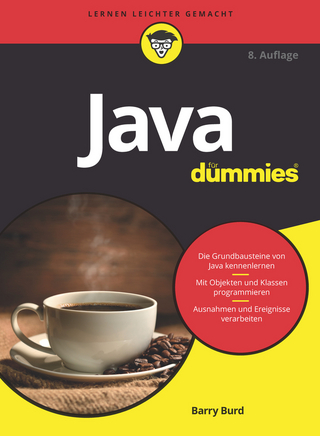
Better, Faster, Lighter Java
O'Reilly Media (Verlag)
978-0-596-00676-1 (ISBN)
Sometimes the simplest answer is the best. Many Enterprise Java developers, accustomed to dealing with Java's spiraling complexity, have fallen into the habit of choosing overly complicated solutions to problems when simpler options are available. Building server applications with "heavyweight" Java-based architectures, such as WebLogic, JBoss, and WebSphere, can be costly and cumbersome. When you've reached the point where you spend more time writing code to support your chosen framework than to solve your actual problems, it's time to think in terms of simplicity. In Better, Faster, Lighter Java authors Bruce Tate and Justin Gehtland argue that the old heavyweight architectures are unwieldy, complicated, and contribute to slow and buggy application code. As an alternative means for building better applications, the authors present two "lightweight" open source architectures: Hibernate--a persistence framework that does its job with a minimal API and gets out of the way, and Spring--a container that's not invasive, heavy or complicated. Hibernate and Spring are designed to be fairly simple to learn and use, and place reasonable demands on system resources. Better, Faster, Lighter
Bruce Tate is a kayaker, mountain biker, and father of two. In his spare time, he is an independent consultant in Austin,Texas. In 2001, he founded J2Life, LLC, a consulting firm that specializes in Java persistence frameworks and lightweight development methods. His customers have included FedEx, Great West Life, TheServerSide, and BEA. He speaks at conferences and Java user's groups around the nation. Before striking out on his own, Bruce spent thirteen years at IBM working on database technologies, object-oriented infrastructure and Java. He was recruited away from IBM to help start the client services practice in an Austin start up called Pervado Systems. He later served a brief stent as CTO of IronGrid, which built nimble Java performance tools. Bruce is the author of four books, including best-selling Bitter Java. First rule of kayak: When in doubt, paddle like Hell. Justin Gehtland is a programmer, author, mentor and instructor, focusing on real-world software applications. Working as a professional programmer, instructor, speaker and pundit since 1992, Justin has developed real-world applications using VB, COM, .NE.
Preface 1. The Inevitable Bloat Bloat Drivers Options Five Principles for Fighting the Bloat Summary 2. Keep It Simple The Value of Simplicity Process and Simplicity Your Safety Net Summary 3. Do One Thing, and Do It Well Understanding the Problem Distilling the Problem Layering Your Architecture Refactoring to Reduce Coupling Summary 4. Strive for Transparency Benefits of Transparency Who's in Control? Alternatives to Transparency Reflection Injecting Code Generating Code Advanced Topics Summary 5. You Are What You Eat Golden Hammers Understanding the Big Picture Considering Technical Requirements Summary 6. Allow for Extension The Basics of Extension Tools for Extension Plug-In Models Who Is the Customer? Summary 7. Hibernate The Lie What Is Hibernate? Using Your Persistent Model Evaluating Hibernate Summary 8. Spring What Is Spring? Pet Store: A Counter-Example The Domain Model Adding Persistence Presentation Summary 9. Simple Spider What Is the Spider? Examining the Requirements Planning for Development The Design The Configuration Service The Crawler/Indexer Service The Search Service The Console Interface The Web Service Interface Extending the Spider 10. Extending jPetStore A Brief Look at the Existing Search Feature Replacing the Controller The User Interface (JSP) Setting Up the Indexer Making Use of the Configuration Service Adding Hibernate Summary 11. Where Do We Go from Here? Technology Process Challenges Conclusion Bibliography Index
| Erscheint lt. Verlag | 6.7.2004 |
|---|---|
| Reihe/Serie | Java Ser. |
| Verlagsort | Sebastopol |
| Sprache | englisch |
| Einbandart | kartoniert |
| Themenwelt | Informatik ► Programmiersprachen / -werkzeuge ► Java |
| Mathematik / Informatik ► Informatik ► Web / Internet | |
| ISBN-10 | 0-596-00676-4 / 0596006764 |
| ISBN-13 | 978-0-596-00676-1 / 9780596006761 |
| Zustand | Neuware |
| Haben Sie eine Frage zum Produkt? |
aus dem Bereich


